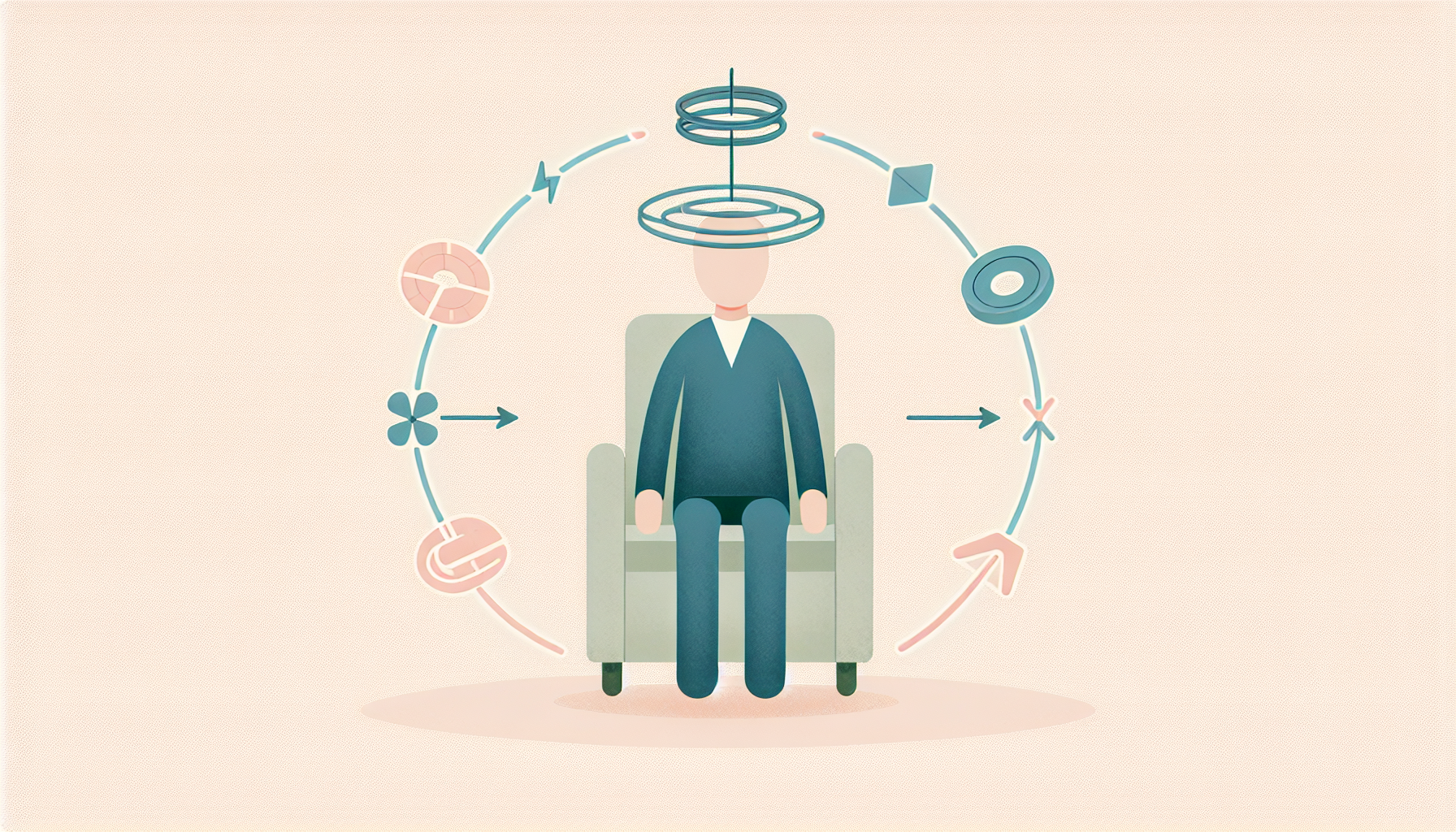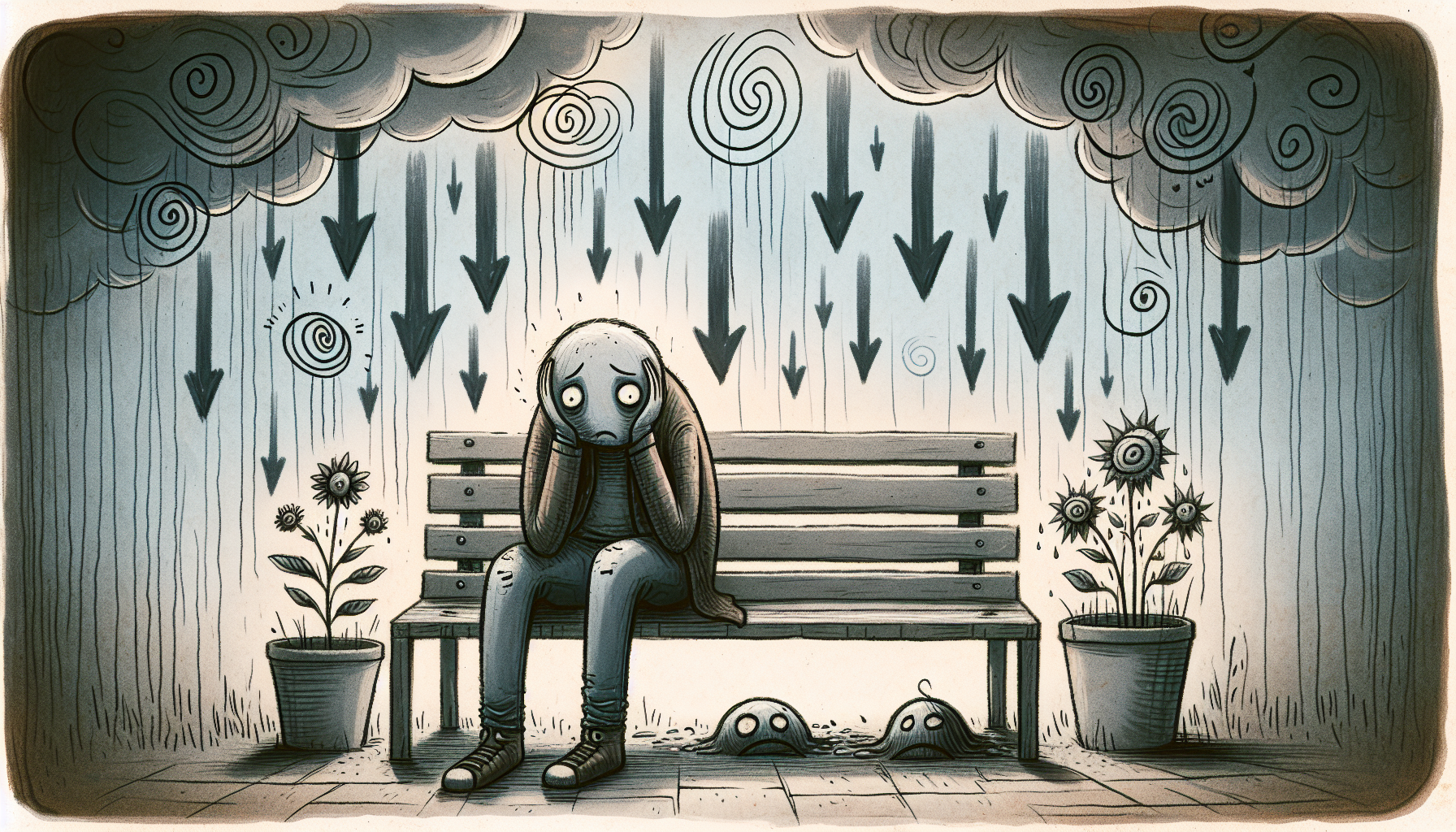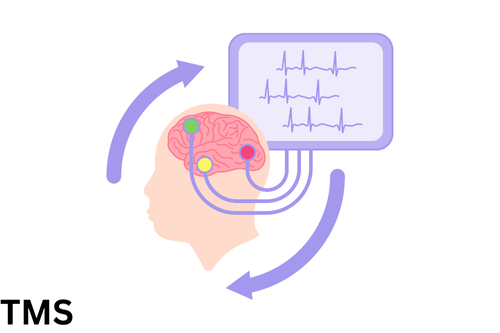TMS Ruined My Life: Understanding and Addressing the Risks
Can TMS therapy worsen your life? Many find relief through TMS therapy, but some say ‘TMS ruined my life’ due to serious side effects and misdiagnoses. This article explores the negative experiences reported by some patients, the risks involved, and why accurate diagnosis is crucial before starting TMS treatment.
Key Takeaways
TMS therapy, while effective for some, can lead to significant negative side effects, including cognitive impairments and mood swings, particularly if patients are misdiagnosed.
Accurate diagnosis and thorough pre-treatment evaluations are essential for optimizing TMS therapy outcomes and minimizing risks associated with the treatment.
Completing the full course of TMS treatment is crucial for sustained improvement in mental health symptoms, as prematurely ending therapy can lead to relapse.
Why Some People Say “TMS Ruined My Life”

While many hail TMS therapy as a breakthrough in mental health treatment, there are those who feel it has caused them more harm than good. These individuals report that TMS therapy has significantly altered their lives negatively, often citing side effects that have severely impacted their quality of life. From headaches and cognitive impairments to mood swings and anxiety spikes, the aftermath of TMS sessions can sometimes be more daunting than the conditions they were meant to treat.
Misdiagnosis plays a crucial role in these negative experiences. For instance, patients with bipolar disorder misdiagnosed as having major depressive disorder may find their symptoms exacerbated post-TMS treatment. Changes in personality or mental state due to TMS can also be linked to underlying conditions such as depression, anxiety, and mental health disorders, making it imperative to have an accurate diagnosis before beginning TMS therapy.
What Is Transcranial Magnetic Stimulation (TMS)?

Transcranial Magnetic Stimulation (TMS) is a non-invasive procedure designed to treat mental health conditions like major depression and OCD by using magnetic pulses to stimulate nerve cells in the brain. Approved by the FDA, TMS therapy is typically recommended for patients who do not respond to traditional antidepressant medications. The treatment involves delivering repetitive transcranial magnetic stimulation to specific areas of the brain, particularly the prefrontal cortex, which is associated with mood regulation.
TMS therapy is widely accepted in the medical community and is covered by many insurance plans, including Medicare and Blue Cross Blue Shield. Since it does not involve surgical interventions, it is considered a safe and non-invasive option for treating depression.
However, like any medical treatment, TMS therapy comes with its own set of potential side effects and risks, which we will explore in subsequent sections.
How TMS Works
TMS operates by applying magnetic pulses that target specific areas of the brain responsible for mood control, particularly the dorsolateral prefrontal cortex. During TMS sessions, patients remain awake and alert, experiencing a tapping sensation on their scalp as the electromagnetic coil delivers repetitive magnetic pulses. This stimulation is believed to alter brain activity, helping to alleviate symptoms of depression and anxiety.
Interestingly, some TMS patients experience what is known as the “TMS dip,” a temporary worsening of symptoms that occurs during the initial weeks of treatment. This dip may reflect physiological changes in neurotransmitter release, which, although challenging, can be a sign that the therapy is beginning to take effect.
Potential Side Effects of TMS Therapy

Like all medical treatments, TMS therapy is not without its risks. Common side effects include mild headaches, scalp discomfort, and site pain. While these are generally temporary, some individuals report more severe side effects such as memory loss, cognitive impairment, and dizziness. These adverse effects can significantly impact a patient’s daily life, and in some cases, have led to the sentiment that “TMS ruined my life.”
While most side effects are mild and short-lived, rare instances of more severe reactions do occur. Understanding both the common and uncommon side effects can help patients make informed decisions about their mental health treatments.
Short-Term Side Effects
Short-term side effects of TMS therapy are typically mild and manageable. Patients often report experiencing headaches and muscle twitching during or shortly after treatment sessions. Lightheadedness is another common short-term effect, but these symptoms usually resolve quickly. Patients should monitor their symptoms and inform healthcare providers if any side effects persist or worsen.
Despite these mild adverse effects, many find that the benefits of TMS therapy in alleviating depression symptoms far outweigh these temporary inconveniences. Understanding these potential side effects can help patients prepare mentally and physically for the treatment process.
Long-Term Risks
Long-term risks associated with TMS therapy are rare but can be severe. One of the most significant concerns is the risk of seizures, which, while extremely low, ranges from less than 0.1% to 0.5%. Cognitive impairments have also been reported as a rare long-term effect, affecting some patients’ memory and cognitive functions.
In some instances, TMS therapy has been linked to the deepening of depressive symptoms and suicidal thoughts. These severe adverse effects underscore the importance of thorough pre-treatment evaluations and continuous monitoring throughout the TMS treatment course.
Misdiagnosis and Its Impact on TMS Treatment
Accurate diagnosis is paramount to the success of TMS therapy. Misdiagnosing a mental health condition can lead to ineffective treatment and potentially worsen the patient’s symptoms. For instance, patients with bipolar disorder who are misdiagnosed with major depressive disorder may experience exacerbated symptoms after TMS treatment.
Therefore, pre-treatment assessments, including psychiatric evaluations, are crucial to confirm diagnoses and gauge symptom severity. Adjusting current medications to avoid interactions with TMS is also an essential step.
This thorough preparation helps ensure that the treatment is tailored to the patient’s specific needs, minimizing the risk of adverse outcomes.
Temporary Worsening of Symptoms: The “TMS Dip”

The “TMS dip” is a phenomenon where patients experience a temporary worsening of depression or anxiety symptoms during the initial weeks of TMS therapy. This dip often arises around the second or third week of treatment and affects approximately one-fifth of patients. Factors such as the initial severity of a patient’s depression can contribute to the likelihood of experiencing a TMS dip.
Patients should understand that the TMS dip does not necessarily mean the treatment is ineffective. Most patients start feeling better within three to four weeks after experiencing the dip. Although challenging, pushing through this phase can lead to significant improvements in the long run.
Can TMS Make Anxiety Worse?
Concerns about TMS therapy worsening anxiety disorders are not unfounded. Some studies have indicated that TMS may lead to increased anxiety symptoms in certain patients undergoing treatment for depression. For example, a 2011 trial found that some participants with panic disorder reported heightened anxiety during TMS sessions.
However, it’s important to note that anxiety is not officially recognized as a side effect of TMS therapy. Individual responses to TMS treatment vary significantly; while some may experience increased anxiety, others report feeling calmer and better able to manage stress after the treatment.
The Importance of Completing the Full TMS Treatment Course
Completing the full course of TMS therapy is crucial for achieving the best possible outcomes. Around half of patients remain symptom-free a year after completing their TMS therapy, particularly those who achieve full remission. Incomplete treatment can lead to a relapse of symptoms or even a worsening of the mental health condition.
Patients may begin to notice mood enhancements within a few weeks, but it’s essential to follow through with the entire treatment plan to ensure sustained improvement. Skipping sessions or ending the treatment early can slow recovery and leave depressive symptoms inadequately addressed.
Personal Relationships and TMS Therapy
TMS therapy can have a profound impact on personal relationships. Increased anxiety, mood swings, headaches, and scalp pain are some of the side effects that can affect interactions with family and friends. These changes can strain relationships, making open communication and mutual understanding vital.
Educating oneself and loved ones about TMS therapy can help in managing expectations and providing the necessary support. Encouraging open dialogue and involving loved ones in treatment discussions can also foster a supportive environment conducive to healing.
Ensuring Effective TMS Treatment
Ensuring the effectiveness of TMS therapy involves several key steps. Adhering to the prescribed treatment schedule is essential for achieving optimal results. Working closely with a mental health professional helps in monitoring progress and making necessary adjustments.
Additionally, maintaining a healthy lifestyle, including quality sleep, a balanced diet, and regular exercise, can enhance the effectiveness of TMS therapy. Staying mentally engaged and tracking progress can also lead to better treatment outcomes.
Can TMS Cause Permanent Damage?
The risk of permanent damage from TMS therapy is considered extremely low. Long-term studies indicate that TMS is generally well-tolerated by patients, with no evidence of long-term harm or negative effects on memory. Permanent damage from TMS is very uncommon. It’s important to note that such occurrences are extremely rare.
Comparatively, other treatments like electroconvulsive therapy (ECT) and ketamine carry more significant risks, such as memory loss and severe side effects. TMS therapy does not change a person’s core personality, and most adverse effects are temporary.
Evaluating If TMS Is Right for You
Determining if TMS therapy is right for you involves a thorough evaluation by healthcare professionals. This includes an accurate diagnosis, a review of medical history, and an assessment of current health and symptom severity. Discussing all medications with a healthcare provider is crucial to ensure safe and effective treatment.
A personalized treatment plan can be developed, tailored to individual needs, including adjustments in the frequency, intensity, and duration of magnetic pulses. Setting realistic expectations about the outcomes and potential side effects of TMS therapy is also crucial for patient preparedness.
Alternatives to TMS for Treating Depression

While TMS therapy is a promising option, there are several alternatives for treating depression. Antidepressant medications are often the first line of treatment for major depressive disorder, although they work effectively for only about one-third of patients. Cognitive Behavioral Therapy (CBT) is recognized as one of the most effective forms of psychotherapy for depression treatment.
Other alternatives include regular physical exercise, which can enhance emotional well-being, mindfulness practices that help manage depression by focusing on the present, and light therapy, which can balance serotonin levels and improve sleep quality. Exploring these options can provide a holistic approach to mental health care.
Summary
In summary, TMS therapy offers a non-invasive, promising treatment for depression and anxiety, particularly for those who have not responded to traditional methods. However, it is not without its risks and side effects, which can range from mild headaches to severe cognitive impairments. The importance of accurate diagnosis, completing the full treatment course, and maintaining open communication with healthcare providers cannot be overstated.
While some individuals report that “TMS ruined my life,” others find significant relief from their symptoms. Thus, it is crucial to weigh the potential benefits and risks carefully and consider alternatives if necessary. By being well-informed and prepared, patients can make the best decision for their mental health.
Frequently Asked Questions
What is TMS therapy?
TMS therapy is an effective non-invasive treatment for depression and anxiety that utilizes magnetic pulses to stimulate nerve cells in the brain. It offers a promising solution for those seeking alternatives to traditional medication.
What are the common side effects of TMS therapy?
Common side effects of TMS therapy include mild headaches, scalp discomfort, and localized pain, all of which are usually temporary.
Can TMS make anxiety worse?
TMS can potentially increase anxiety symptoms in some patients, though this effect is not widely recognized and varies among individuals. It’s important to consult with a healthcare professional to discuss any concerns.
What is the TMS dip?
The TMS dip refers to a temporary worsening of symptoms that some patients may experience in the first weeks of TMS treatment. This phenomenon is generally short-lived and can improve as treatment progresses.
Are there alternatives to TMS therapy for treating depression?
Yes, alternatives to TMS therapy for treating depression include antidepressant medications, Cognitive Behavioral Therapy (CBT), physical exercise, mindfulness practices, and light therapy. These options can be effective for many individuals seeking relief from depressive symptoms.





